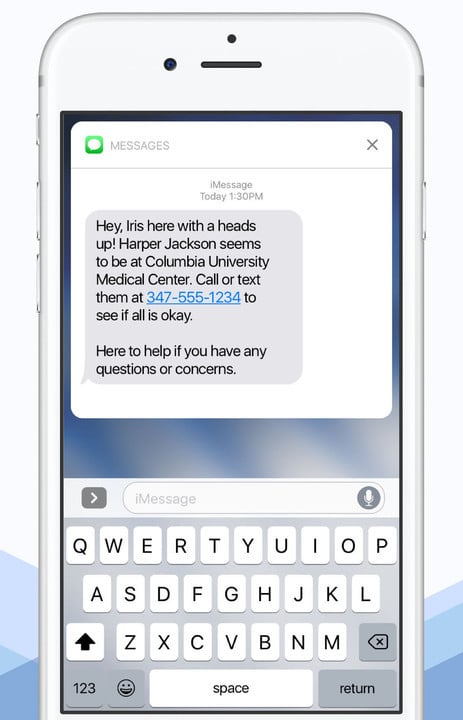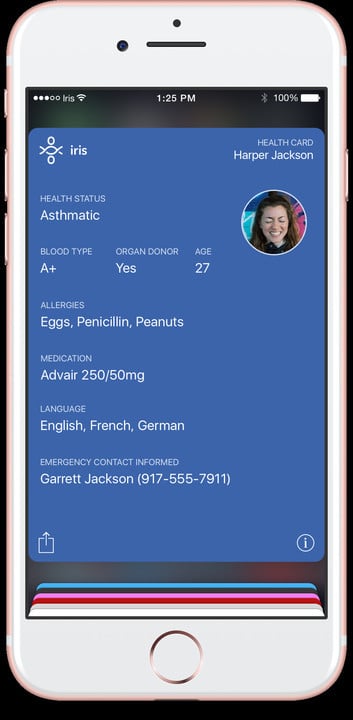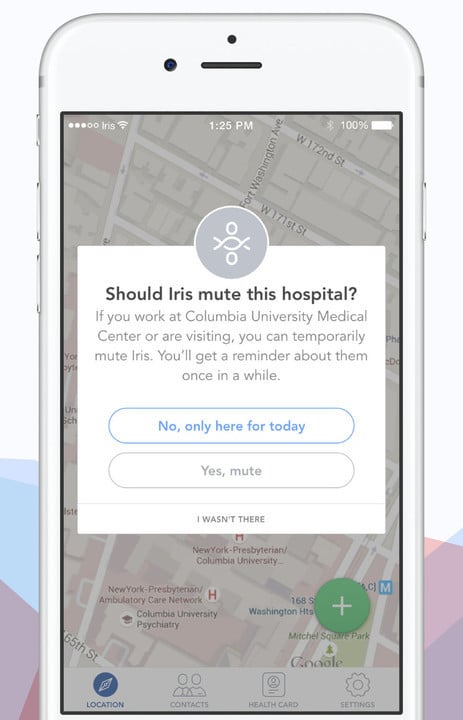
Iris, the Modern-Day Personal Emergency Alert System
When the worst happens, you can often find yourself physically or mentally unable to provide critical information to first responders and medical professionals. This is usually when it’s most vital for them to have that information, but life seldom plays by the rules. While you may be lucky enough to fall ill or be involved in an accident in the company of friends and loved ones who can look after you, that’s not always going to happen. It’s that type of situation, when you’re alone and unable to really speak for yourself, that Iris becomes your modern-day personal emergency alert system.
The Anxiety-Spawned Product and Service
Iris came about because of a concern co-founder and CEO Cat Noone had during a trip to Germany. She wondered what would happen if they were in a car accident, rendered unconscious, and taken to the hospital. A foreigner in a country where nobody could identify her as an American beyond her passport, Noone worried who would make medical decisions for her when she couldn’t.
This led to even more concerns. She worried how doctors might know she was allergic to a specific medication, or who could reach out to her family to let them know of her plight. After the initial bout of paranoia, Noone says, more scenarios came to light as she and her growing team talked to people throughout the world. These scenarios ranged from Alzheimer’s sufferers not remembering that they had family nearby to come to their side to nonverbal teenagers with Autism Spectrum Disorder, unable to share family or health information that would help doctors understand any lack of cooperation.
To make a long story short, these are the sorts of circumstances that led to the creation of Iris, a modern-day personal emergency alert system.
How Iris Becomes Your Personal Emergency Alert System
Iris uses geofencing technology to determine when you are in a hospital. Roughly ten minutes after your arrival at a medical facility, the app sends you an alert asking if you’re okay. Should you fail to respond, the app sends text messages to your emergency contacts, letting them know where you are and that you haven’t responded to the app’s queries about your well-being.



The medical detail card in Iris provides plenty of details to doctors and nurses
Through a personal health card located on your iPhone screen, Iris also provides medical professionals with your most important medical information. The screen provides your name, health status, spoken language, daily medications, and more.
With Iris, your loved ones can be immediately notified of a situation that’s landed you in the hospital. Medical professionals can quickly and easily get information that you would have otherwise been unable to provide. It’s an amazing app, and it’s fairly surprising that nothing like it has yet appeared on the App Store.
How Does It Do All of That?
An immediate concern about this personal emergency alert system might be battery life, if the app is continuously using your GPS data. That’s not the case, though. In fact, Iris only updates your location when you change Wi-Fi hotspots or cell towers, and it utilizes the services of location provider Radar to maintain fantastic geolocation accuracy.

If you are just visiting, or you're employed at a hospital, you can mute Iris for that facility
Through the partnership with Radar, Iris detects hospitals in the area of the cell tower you’re attached to. If you’re in the vicinity of a hospital for longer than 10 minutes, the app sends you a push notification to make sure you aren’t indisposed. That “starts the funnel,” as Noone puts it.
If you are visiting someone at the hospital, or work there, you can “Mute” that medical facility for a particular duration. A day before the “Mute” is lifted, Iris follows up to make sure you understand it will happen.
What About My Privacy?
The team at Iris is very concerned about privacy. Very little of your personal information is stored on its servers. In fact, all that gets uploaded to Iris’s servers is your email, name, and a photograph, if you choose to provide one.
With that said, Iris is not yet compliant with the Health Insurance Portability and Accountability Act of 1996 (HIPAA). Since the app does not send or allow medical professionals to share or print the information on your health card, the app’s developers have not yet gotten to that phase in the game. However, upcoming features of the product and service will require HIPAA compliance, so one of the next steps the developers are taking is to secure that certification.
Where Is Iris Available?
Clearly, this is a massive undertaking, and Iris isn’t yet available in all cities. The team is beta testing the service in Manhattan, New York and Berlin, Germany. As testing progresses, the team plans to roll out in more cities. In fact, you can request your own city from the app’s web page.
If you’re already in Iris’s coverage area, check it out on the App Store. It may be a cliché, but the life you save could be your own.